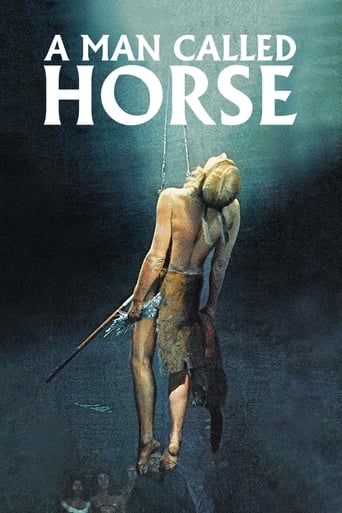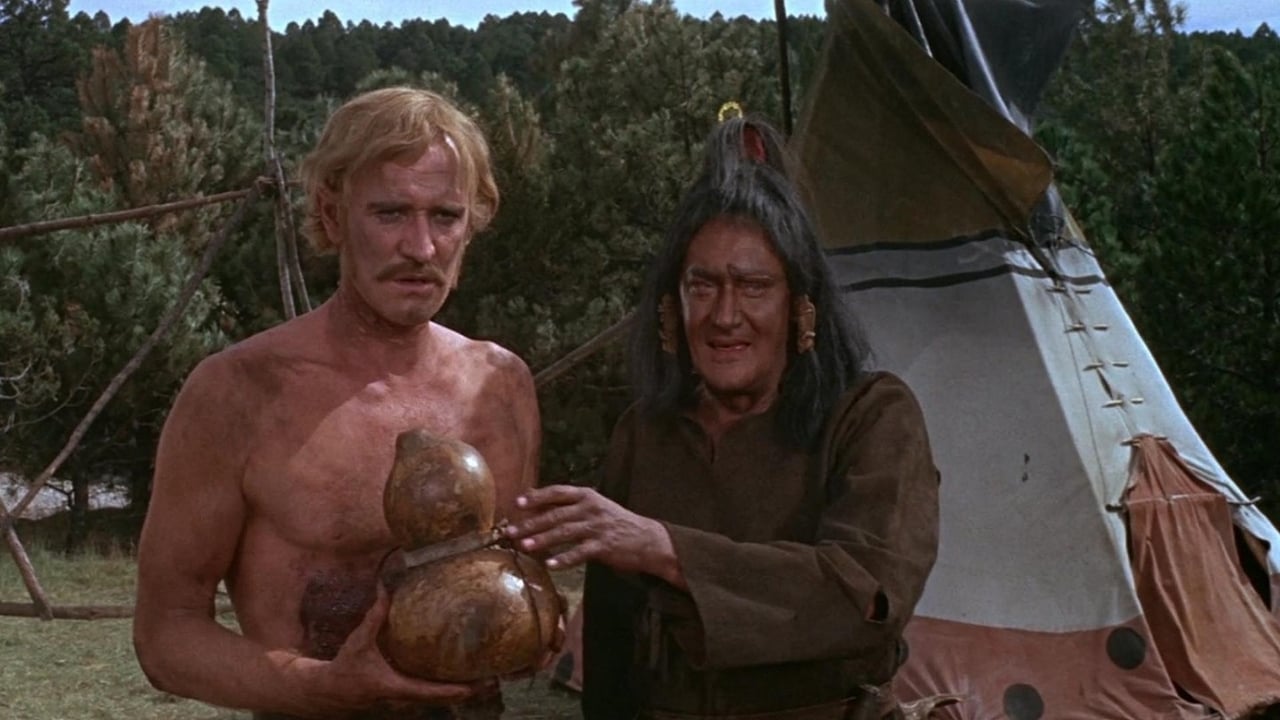johnkuba
In the movie A Man Called Horse, there is many changes to the original story by Dorothy Johnson. One of the minor things changed was the names of the characters. This was a minor change to the story because in my opinion the names changed did not affect the plot and the overall message from the original story. Another minor change in the story was in the original book the Indian tribe Horse lived with were the Crow tribe but in the movie they were the Sioux tribe. I think this was minor because I don't think there were many differences between the tribes There were two major changes from the original story as well. One of them was the use of the character Baptise . In the Story by Dorothy Johnson, Baptise was only mentioned minor and did not play a major role in the book. But in the movie, Baptise had a huge role because he was the one who knew how to speak English and the Sioux language. This helped out the main character, Horse, as Baptise acted as a translator for him . Another major change in the story is they added was they added the sun vow and the sweat lodge scene. I felt this improved the story because it showed the process and ceremonies in detail how Horse became married to Running Deer which was left out in the original story .
mercersk
This movie is a powerful testimony to the endurance and spiritual life of the Plains Indians, of a time gone forever. When I first saw it in 1970, I was impressed with the production, but after seeing it again more than 40 years later, I was far more moved. I am rarely ever brought to tears by a movie, but this movie touched me so deeply that it was a bona fide spiritual experience, and even more powerfully moving. It also serves as a testimony of how the Indians lived, their culture, and how they practiced their own form of spirituality. I think this movie is a "must see" for anyone wanting to experience what life might have been like in those long-past times. I found myself grieving along with the people of the tribe after the attack and tragic deaths of many of the tribes people.
Master Cultist
Richard Harris plays an English nobleman, spending time in America during the 19th Century, hunting game. He is captured by a tribe of Indians, and treated as a slave. Gradually, through means of fumbled communication, and by enduring several challenges and tests, he becomes accepted as one of their own, and even helps lead the repulsion of a rival tribe. Harris is excellent in the lead role, playing both nobleman and hardened warrior well. The most interesting point of the movie is the general lack of dialogue. The Native Americans speak in their own tongue, which Harris' character does not understand at all to begin with, and no attempt is made by the director to enlighten the viewer as to what is being said. A brave, and incredibly forward thinking decision. As a result you, as the viewer, are propelled into Harris' world, where strange language and bizarre rituals have to be observed carefully before they can be understood. Dated, for sure, but this is still an interesting movie, and the fact that the two hour running time passes in the blink of an eye seems to indicate it is also engrossing.Well worth the effort.
happipuppi13
The late great Richard Harris. (Not counting his foray into recorded pop music with MacAurther Park.) He was one the great English actors of his time. From "Camelot" where he played King Aurthur to this truly bold and gritty role as a privileged young Englishman,looking for more in his life than those "rights of inheritance". I got this movie (and it's sequel) from the library and watched both back to back.From the outset,this movie while set well over 100 years before 1970,reflected the young American point of view at that time of fighting the conventions and traditional beliefs of one's elders. Some may find that kind of idea dated but in my view there really is nothing more confining than living life as others "expect" you to and conform to the "norm".John (Harris) is unfortunately saddled with 3 typical uneducated,hard-drinking guides,who think of him as an English "dandy" and give him no respect. Going so far as to ruin his property while he's out hunting. Enter the Sioux/Yellow Hand tribe male warriors who,for seemingly no reason other than these are white men,attack and kill all but John.They fish an unclothed bathing John from the lake and (as the title implies) dub him a horse and drag him (literally)back to camp. He's taunted and harassed and made to be the work-horse of a cranky Sioux elder woman. Children even ride him during a wild party.Another man who was captured 5 years sooner and suffered even worse is the wonderful character Batiste. He speaks French, English and Siuox and behaves like he's lost his mind so the tribesmen would stop bothering him. Thus,he becomes the co-conspirator in helping "Horse" gain his freedom. John falls for the lovely Sioux girl he dubs "Little Freedom" and goes through a ritual guaranteed to make faint-hearted viewers cringe. The "Vow To The Sun",where sharp claws and hooks are attached to his chest and he's then hoisted by ropes through the open roof and spun around. This is a test in the ability to endure pain and suffering,sort of a metaphor for all the Native-Ameicans have suffered at the hands of people from other countries. John wins his bride but they still have to fight a warring rival tribe and the battle comes later. John ends up losing his closest friends and his wife and vows to be the son of the elder woman until she finally passes on. It's true a great deal of this is not factual,despite being about a real person. Hollywood has a notorious history of taking the background of other races and distorting who and what they're about. It's a little surprising here given they were trying to make a film that gives a better idea of what actual Indian tribes were like. Other than those unfortunate but hardly surprising missteps,this film "is" a classic and a great riveting story. I don't really see how one comes up "empty" after watching this film. Empty would be those ridiculous movies where Indians speak in that fake dialect dreamed up by Hollywood. "You smoke 'em peace-pipe?" Puh-lease!I give ten stars for this film because it is a great story to watch. Probably even a better one to read,since it is based on the book of the same name. Maybe I'll give that a read too. (END)



 AD
AD



